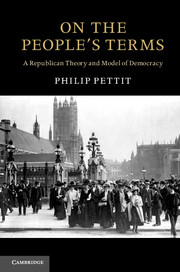Chamada para artigos da décima sétima conferência anual de pós-graduação do Manchester Center of Political Theory (MANCEPT). As "estrelas" dessa edição são os professores Samuel Scheffler (NYU) e Michael Otsuka (UCL).
O prazo para a submissão de artigos é 22 de Março 2013.
BRAVE NEW WORLD
Deadline for submission of abstract: 22nd March 2013
Brave New World 2013, the Seventeenth Annual Postgraduate Conference organised under the auspices of the Manchester Centre for Political Theory (MANCEPT), will take place on Thursday 27th and Friday 28th June 2013 at the University of Manchester. We are pleased to announce that our guest speakers this year are:
Samuel Scheffler (NYU)
Michael Otsuka (UCL)
The Brave New World conference series is now established as a leading international forum dedicated exclusively to the discussion of postgraduate research in political theory. Participants will have the chance to meet and talk about their work with eminent academics, including members of faculty from the University of Manchester and guest speakers, who will deliver keynote addresses at the event.
Guest speakers in previous years have included: Richard Arneson, Brian Barry, Simon Caney, G.A. Cohen, Roger Crisp, Cecile Fabre, Jerry Gaus, Peter Jones, Chandran Kukathas, Kasper Lippert-Rasmussen, Susan Mendus, David Miller, Onora O’Neill, Michael Otsuka, Bhikhu Parekh, Carole Pateman, Anne Phillips, Thomas Pogge, Joseph Raz, Andrea Sangiovanni, Quentin Skinner, Hillel Steiner, Adam Swift, Philippe Van Parijs, Leif Wenar, Andrew Williams and Jonathan Wolff.
SUBMISSION GUIDELINES: The deadline is 22nd March 2013. If you would like to present a paper, then please submit a title and abstract of approximately 300 words. Papers focusing on any area of political theory or political philosophy are welcome. Abstracts should be prepared for blind review in MS Word format. Graduate submissions should be sent by e-mail to Brave.New.World@manchester.ac.uk.
Please also include in your email your name and institutional affiliation. Notices of acceptance will be sent by 26th April 2013. A number of bursaries are available for presenters and will be allocated in accordance with need. If you wish to be considered for a bursary, please say so when submitting your abstract. Please note that apart from these bursaries the conference is self-financed and participants are responsible for seeking their own funding. For further details please contact us at Brave.New.World@manchester.ac.uk. Or visit our blog at http://manceptphd.blogspot.co.uk/

